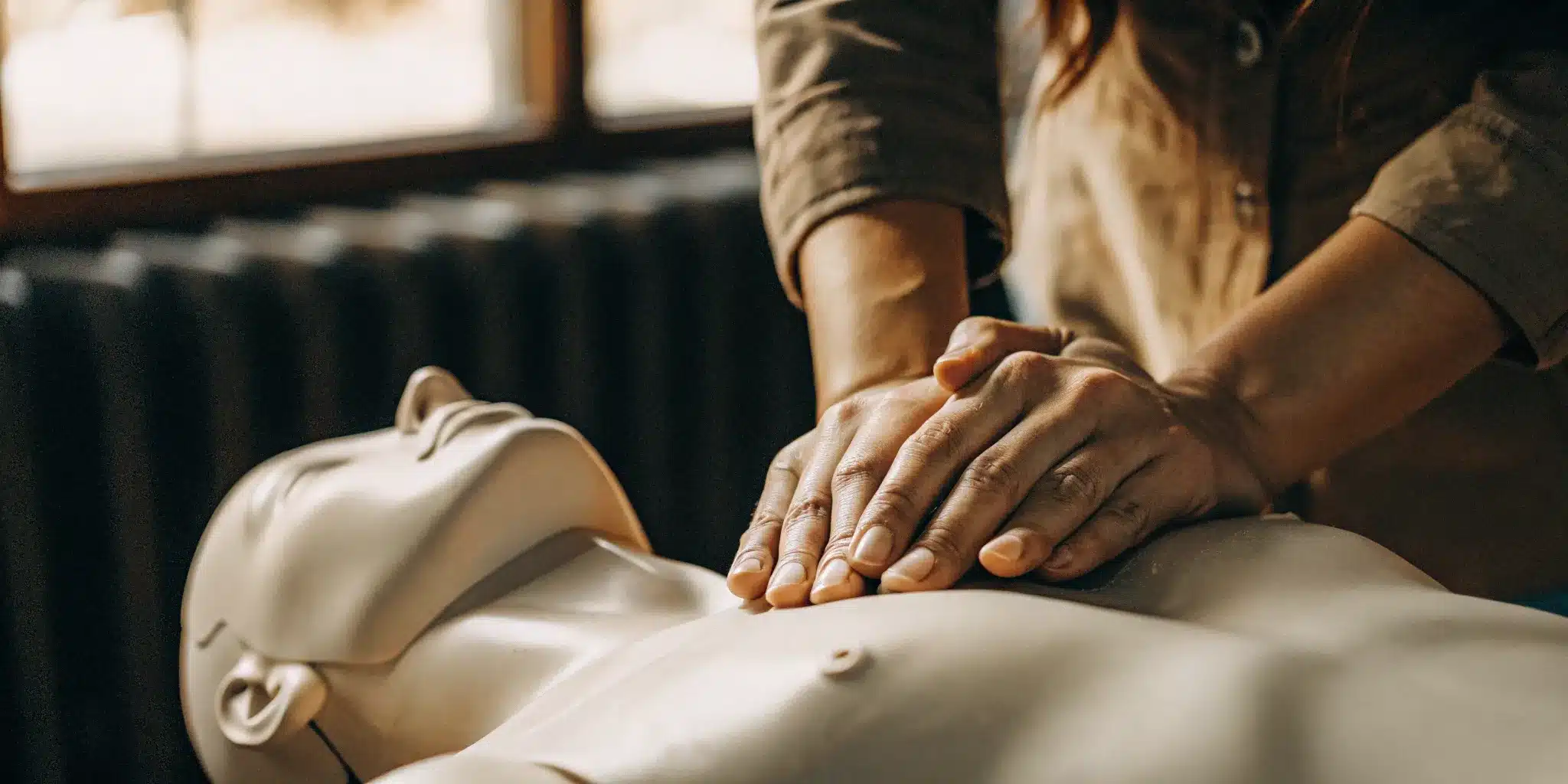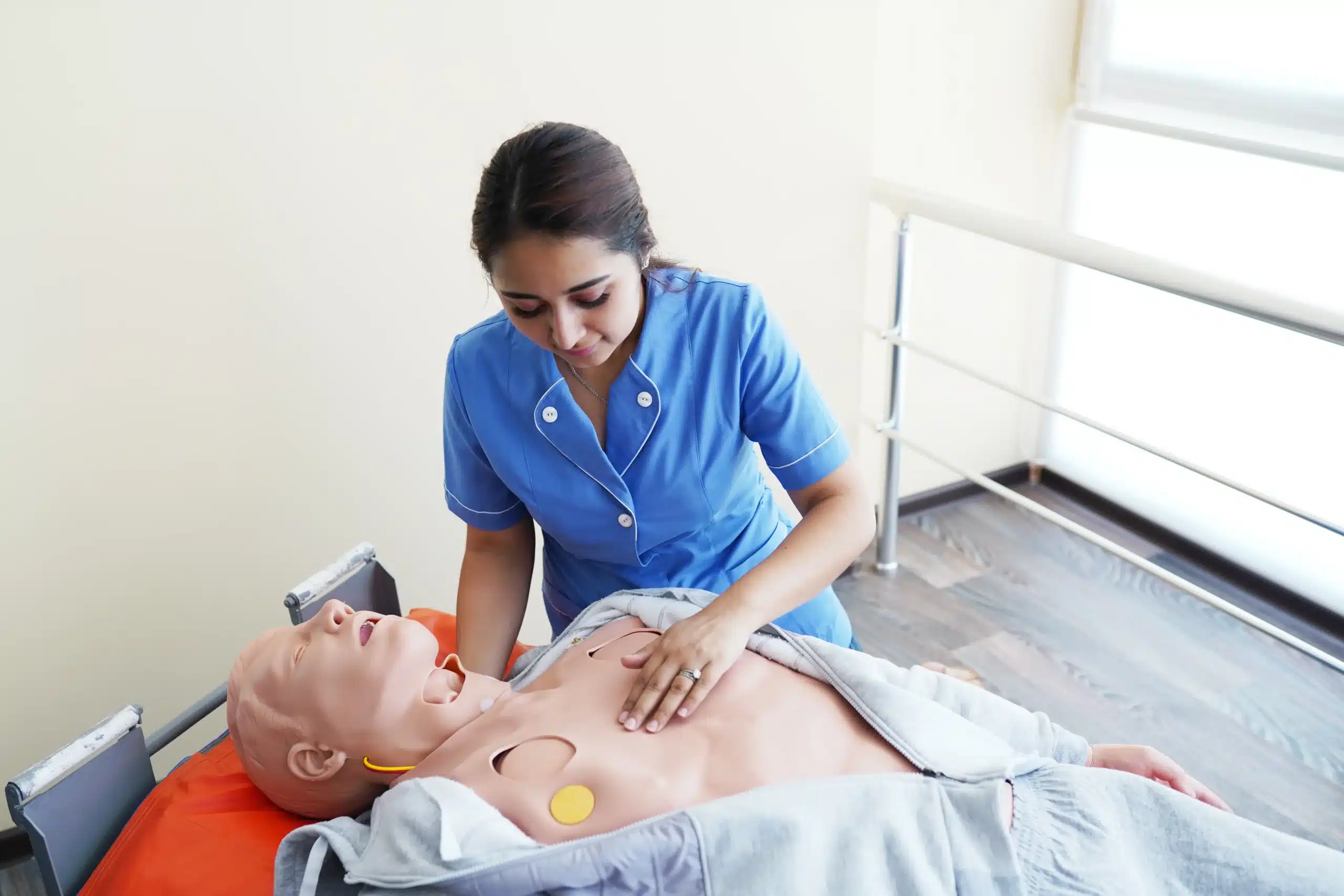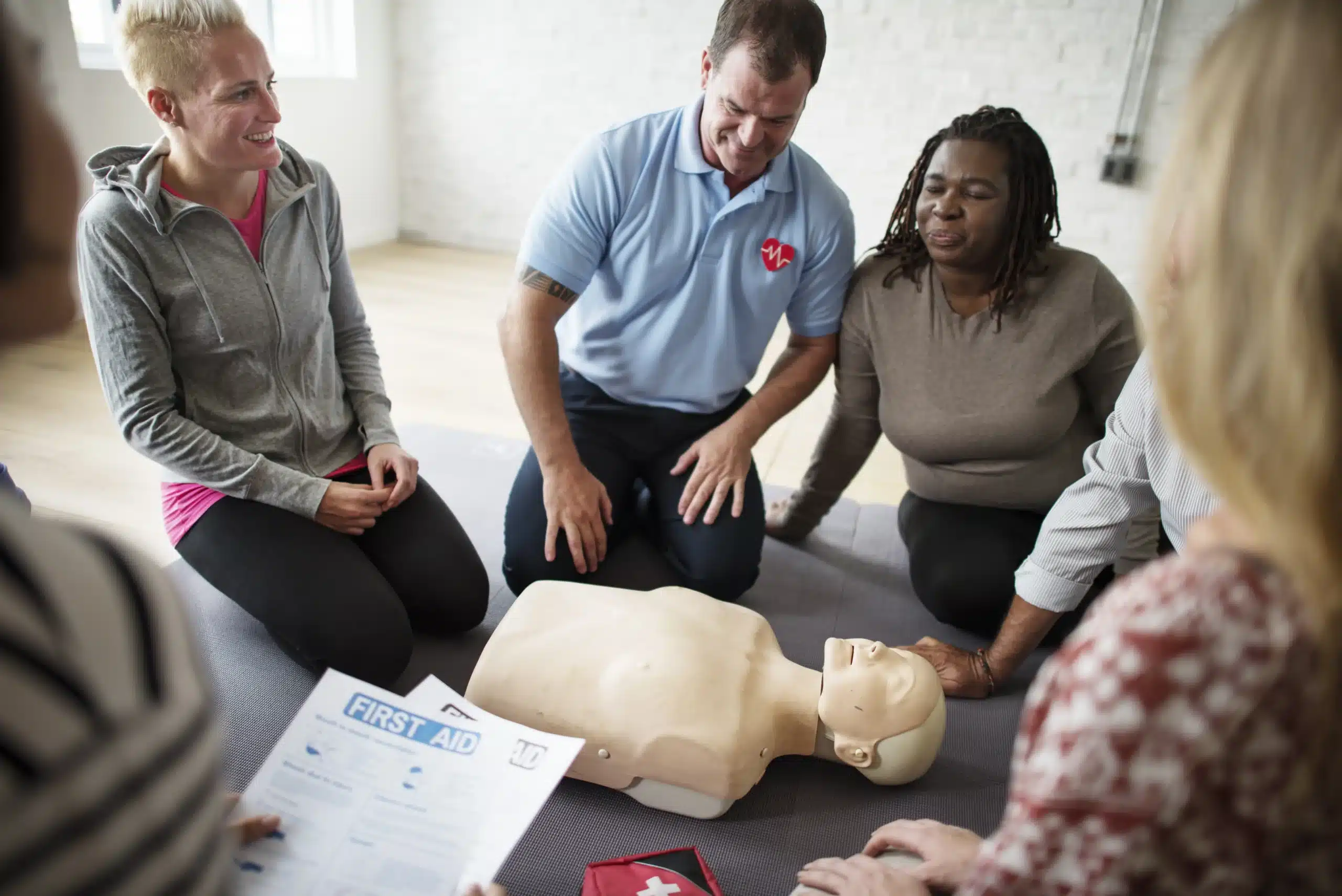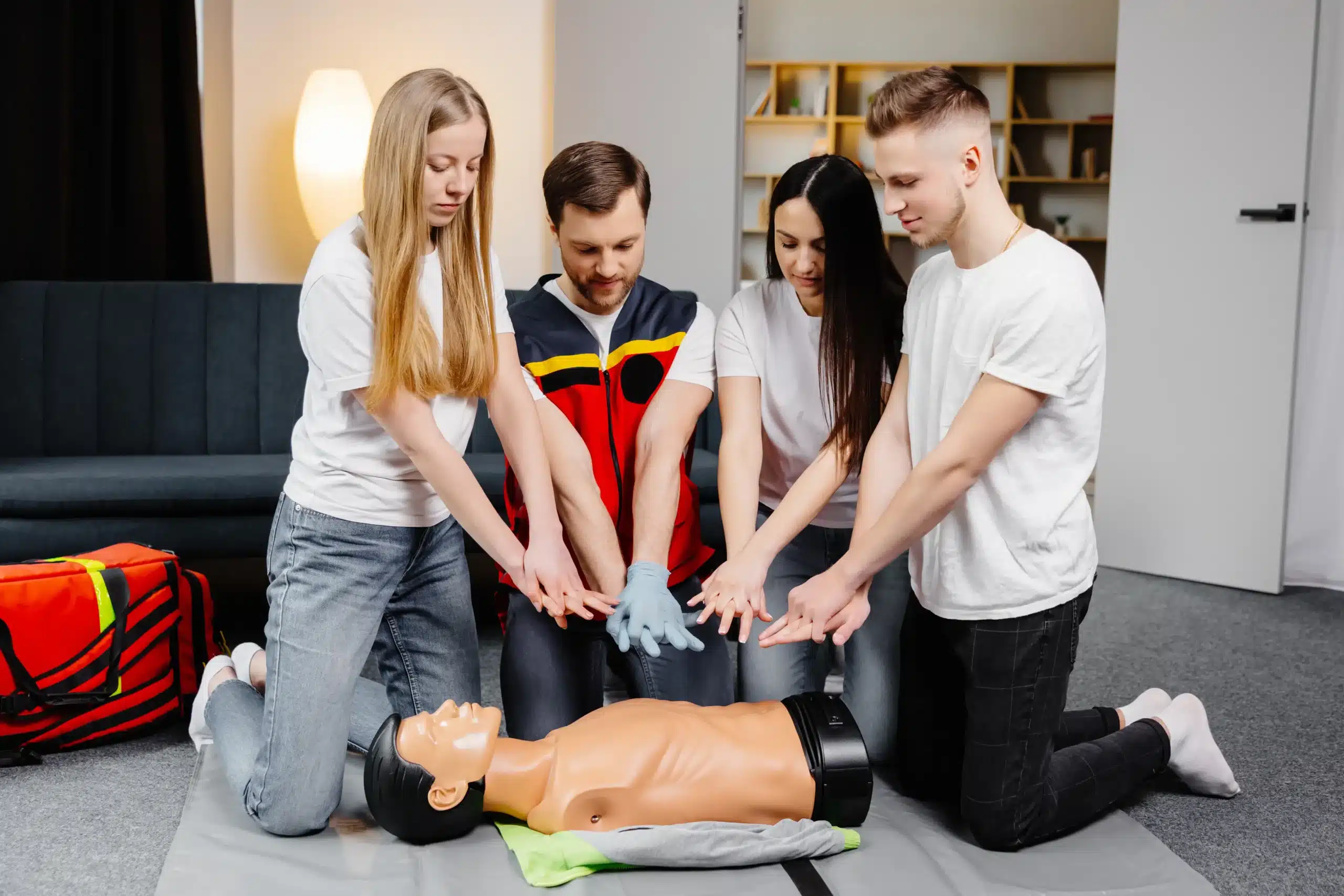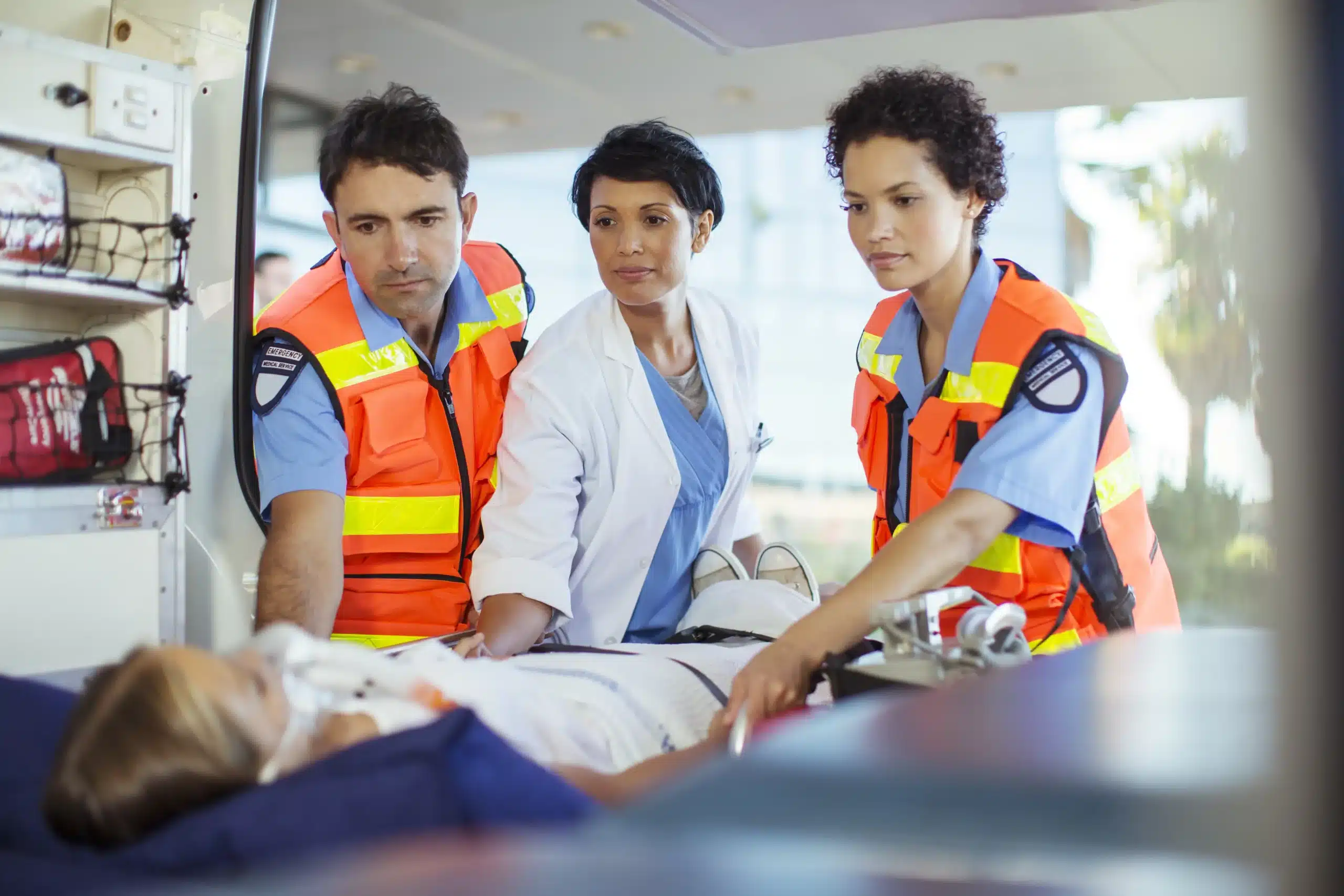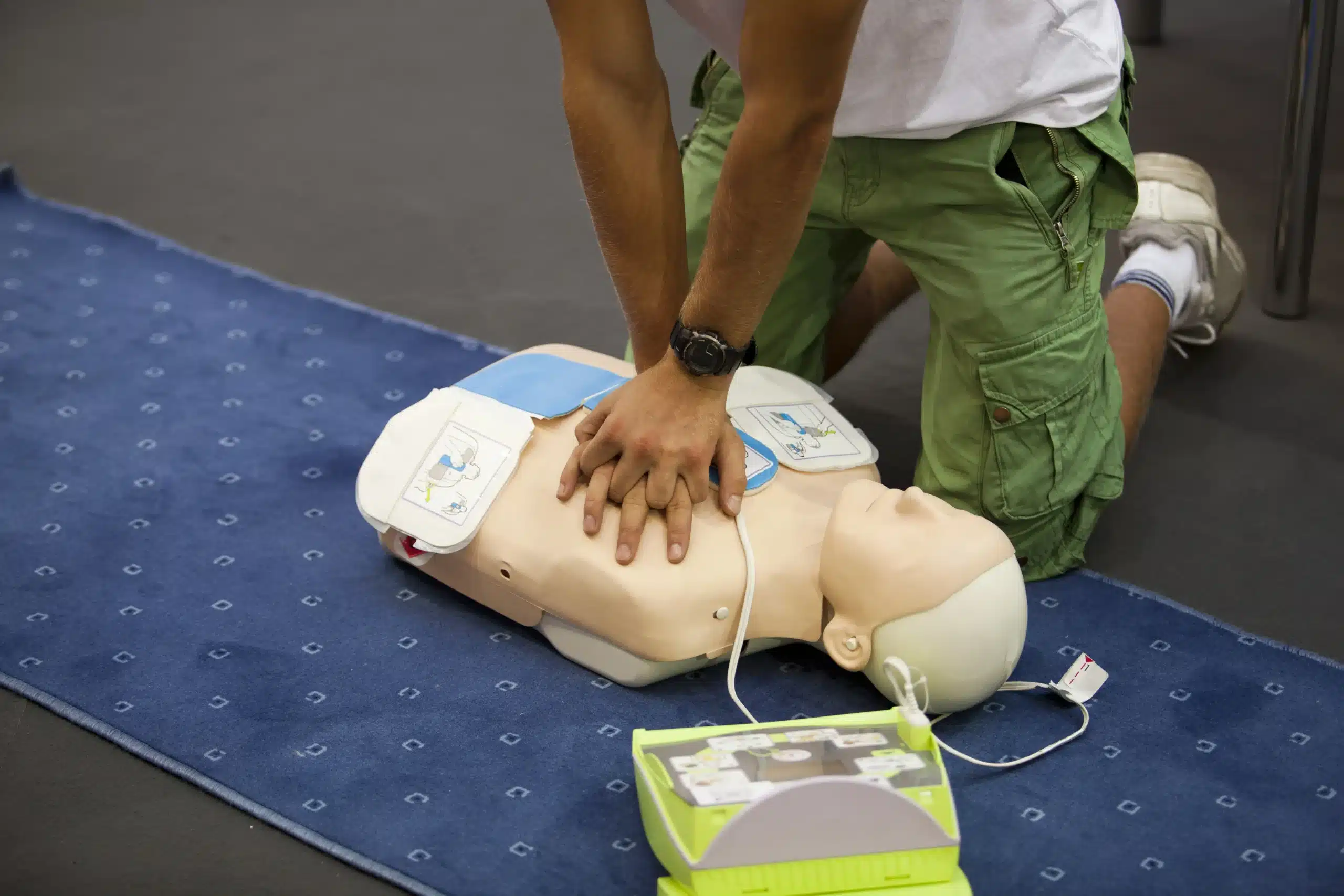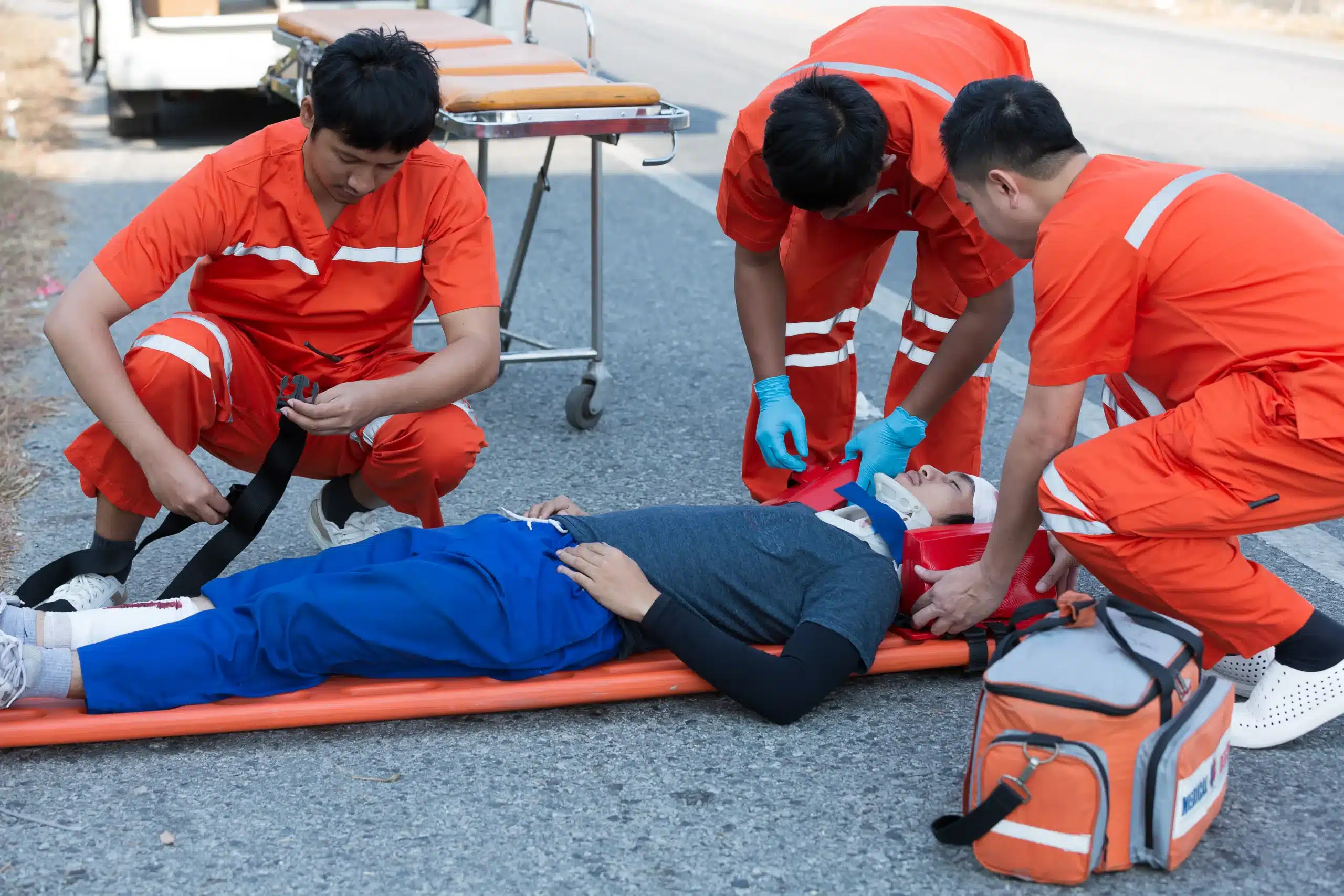In the face of a medical emergency, seconds can matter. Knowing CPR can empower you to act quickly and potentially save a life. If you’re in Dublin and searching for “CPR classes near me,” this guide is your starting point. We’ll explore the various CPR classes Dublin offers, catering to different needs and schedules. Whether you’re a healthcare provider, a childcare worker, or simply someone who wants to be prepared, understanding the different levels of certification, from BLS to First Aid, is crucial. This guide will also cover the benefits of hands-on training, the importance of choosing a certified instructor, and tips for finding affordable CPR classes in Dublin. We’ll debunk common myths surrounding CPR and provide you with the resources you need to confidently choose the right training program.
Key Takeaways
- CPR skills empower you in emergencies: Learning CPR, including the hands-only method, equips you to provide immediate assistance when it matters most. Explore various class formats to find the best fit for your learning style.
- Dublin CPR Classes offers flexible and affordable training: Discover a range of CPR certifications, from basic to advanced, with options for in-person, online, or blended learning. Check out their group discounts and low-price guarantee.
- Become confident in your ability to help: Understanding the realities of CPR dispels common myths and empowers you to act quickly and effectively in a crisis. Remember, your actions can significantly improve someone’s chances of survival.
What is CPR and Why is it Important?
Cardiopulmonary resuscitation (CPR) is a life-saving technique used when someone’s heartbeat or breathing stops. This can happen during a heart attack, near-drowning, or other medical emergencies. CPR involves chest compressions, and sometimes rescue breaths, to circulate blood and oxygen to the brain and other vital organs. Think of it as manually taking over the function of the heart and lungs until professional medical help arrives. CPR keeps blood and oxygen flowing, giving the person a much better chance of survival until paramedics arrive.
Learning CPR is crucial because it dramatically improves the odds of survival for someone experiencing cardiac arrest. The quicker CPR begins, the better the outcome. According to the Cleveland Clinic, immediate CPR after cardiac arrest can double or even triple a person’s chance of survival. Those first few minutes are critical for minimizing damage to the brain and other vital organs. Immediate action can truly make the difference between life and death.
Even if you’re not fully trained in CPR, “hands-only CPR,” focusing solely on chest compressions, can still be incredibly effective. This simplified method empowers anyone to provide assistance while waiting for paramedics. The Cleveland Clinic’s guide on CPR provides clear instructions on performing both traditional and hands-only CPR. It’s a skill that can make a profound difference in a life-or-death situation, and one that everyone should consider learning.
CPR Classes in Dublin: Which One is Right for You?
Choosing the right CPR class depends on your specific needs and goals. Whether you’re a healthcare professional, a childcare provider, or simply someone who wants to be prepared for emergencies, there’s a CPR class in Dublin for you. Let’s break down the different types of CPR certification available.
BLS
Basic Life Support (BLS) certification is the foundation for anyone in healthcare. Dublin CPR Classes offers American Heart Association-certified BLS courses covering high-quality CPR for adults, children, and infants, along with AED use and effective team dynamics during resuscitation. This course is essential for doctors, nurses, paramedics, and other healthcare providers. It emphasizes practical skills and real-world scenarios to prepare you for various emergencies.
ACLS
Advanced Cardiovascular Life Support (ACLS) builds upon the skills learned in BLS. It’s designed for healthcare professionals who manage patients during cardiac arrest or other cardiovascular emergencies. For convenient recertification, Dublin CPR Classes offers the RQI program, allowing you to quickly renew your credentials. ACLS covers advanced airway management, pharmacology, and effective team leadership in critical situations.
PALS
Pediatric Advanced Life Support (PALS) focuses on the specific needs of infants and children facing life-threatening illnesses or injuries. While Dublin CPR Classes doesn’t directly offer PALS certification, understanding its importance is key if you work with children. PALS courses equip healthcare providers with the knowledge and skills to manage pediatric emergencies effectively. You can explore other training providers in the area for PALS certification.
First Aid
First Aid training is a valuable skill for everyone. While not strictly CPR, it’s a perfect complement. Knowing how to treat minor injuries, control bleeding, and manage other medical emergencies until professional help arrives can make a real difference. Combine your CPR training with a First Aid course to become truly well-rounded and prepared for any situation.
Find a CPR Class That Fits Your Schedule
Finding the right CPR class often comes down to format and scheduling. Luckily, there are several options available to fit your needs, whether you prefer hands-on learning, a fully online experience, or a blend of both. Let’s explore the different CPR class formats offered by Dublin CPR Classes.
In-Person Classes
In-person CPR classes offer a traditional learning environment with direct interaction with certified instructors. These classes provide the opportunity for hands-on practice and real-time feedback, which can be invaluable for mastering essential CPR techniques. Dublin CPR Classes offers in-person training at convenient locations, making it easy to find a class near you. Our BLS course is a great option for healthcare providers and other professionals seeking in-person training. We also offer group discounts for organizations in Dublin, Livermore, and San Ramon.
Online Certification
For those with busy schedules or limited access to in-person training, online certification can be a convenient option. Dublin CPR Classes offers online courses that cover the essential knowledge and skills needed for CPR certification. However, it’s important to note that online-only classes do not provide OSHA certification. If workplace certification is your goal, consider a hybrid course or our RQI program.
Hybrid Courses
Hybrid courses combine the convenience of online learning with the benefits of in-person skills sessions. This format allows you to learn the theoretical aspects of CPR at your own pace, followed by a hands-on session to practice your skills and receive personalized feedback from an instructor. This blended approach offers flexibility while ensuring you receive comprehensive training. For those seeking a balance between online learning and in-person interaction, our hybrid courses are an excellent choice.
RQI Program
Dublin CPR Classes is proud to offer the American Heart Association’s RQI program. RQI (Resuscitation Quality Improvement) is a unique program designed for healthcare professionals seeking BLS, ACLS, and PALS certifications. This innovative program uses a streamlined three-step process: an online course, a skills test, and same-day certification card issuance. The RQI program offers an efficient way to maintain your certifications, allowing you to focus on providing high-quality patient care. Check out our low price guarantee for all our courses.
What Happens in a Dublin CPR Class?
Wondering what you’ll learn and experience in a Dublin CPR class? Here’s a preview of what you can expect, from course content and hands-on practice to the use of innovative feedback devices.
Course Content and Duration
Dublin CPR certification courses cover essential life-saving skills. You’ll learn the fundamentals of CPR, including chest compressions and rescue breaths, how to recognize the signs of a heart attack and stroke, and how to use an automated external defibrillator (AED). Some courses also include training in Pediatric First Aid and Basic Life Support (BLS) for healthcare providers. These Dublin CPR classes aim to give you the confidence to act in an emergency. The in-person classes typically earn you a two-year certification that meets OSHA standards. Class duration varies, generally lasting two or more hours depending on the format and specific content. You can find more information on CPR class times and content from CPR Education – Dublin.
Hands-on Practice and Assessment
Hands-on practice is a crucial part of any CPR class. You’ll practice your skills on realistic mannequins, allowing you to develop muscle memory and gain confidence. Dublin CPR classes offer different learning formats. You can choose a traditional in-person class or a blended learning approach. Blended learning typically involves completing an online learning module at your own pace, followed by a shorter in-person session for hands-on practice and assessment. This flexible approach lets you learn the material conveniently before demonstrating your skills in person.
Feedback Devices
Many Dublin CPR classes use innovative feedback devices during training. These devices provide real-time feedback on the quality of your compressions and breaths, helping you refine your technique and perform CPR more effectively. Studies show that using these devices leads to improved CPR performance and increased student engagement. The American Heart Association highlights the benefits of feedback devices in CPR training. Research further supports the importance of immediate electronic-based feedback for enhancing CPR skills.
Meet Your CPR Instructors
When it comes to learning CPR, the instructor’s expertise matters. At Dublin CPR Classes, you’ll learn from experienced professionals dedicated to providing high-quality instruction. Our team includes firefighters, paramedics, and other certified professionals, including owner Josh Sauberman, a Bay Area resident since 2000. This hands-on experience translates into practical, engaging training that prepares you to confidently respond to emergencies. Learn more about our CPR class offerings. We emphasize the life-saving potential of CPR and ensure you receive the knowledge and skills necessary to act effectively in critical situations. For convenient online certification, explore our American Heart Association RQI program.
Get Certified: Process and Workplace Standards
Certification Validity and Renewal
Once you’ve completed your CPR training, you’ll receive a certification. Most CPR certifications are valid for two to three years, although specifics might vary. For example, in-person CPR/AED certification from the Red Cross is valid for two years. To maintain your skills and ensure your certification remains current, you’ll need to renew it or take a refresher course before it expires. Check with your certifying organization, such as the American Heart Association or Red Cross, for their specific renewal guidelines. Dublin CPR Classes offers convenient renewal courses to help you stay up-to-date.
Industry Regulations
CPR guidelines and best practices are constantly evolving as medical knowledge advances. The American Heart Association (AHA) regularly updates its recommendations to reflect the latest research. One significant change in recent years is the emphasis on compression-only CPR. While traditional CPR involved both chest compressions and rescue breaths, the AHA now suggests that compression-only CPR is the preferred method for most situations. Mouth-to-mouth resuscitation is still important in certain cases, but the focus on continuous compressions helps maintain blood flow to vital organs. Understanding these current CPR guidelines is crucial for providing effective assistance during a cardiac emergency. Dublin CPR Classes ensures all training adheres to the most recent AHA guidelines, equipping you with the most effective techniques.
CPR Class Pricing and Discounts
Finding the right CPR class often involves balancing quality training with budget considerations. CPR class costs in Dublin can differ based on the level of certification, the course format (in-person, online, or blended), and the training provider. While it’s wise to be cost-conscious, remember that the value of this life-saving skill is immeasurable.
Dublin CPR Classes offers a low-price guarantee and believes that price shouldn’t be a barrier to learning CPR. Check our website for current pricing on our BLS courses, ACLS, PALS, and First Aid training. We also offer the convenient RQI program for online recertification.
We also understand the importance of making training accessible to larger groups. Whether you’re a business owner looking to train your staff or a community group wanting to learn together, explore our group discounts to make training more affordable. Contact our customer service team to discuss your specific needs and explore options. We’re happy to help you find the best fit for your group.
Choose the Right CPR Class
Choosing the right CPR class depends on several factors, including your personal or professional needs and any industry-specific requirements. Understanding these distinctions will help you select the most appropriate training.
Personal vs. Professional Needs
Are you learning CPR to be prepared for emergencies at home, or do you need it for your job? This is the first question to ask yourself. A general CPR and first aid course equips you with the skills to assist family members, friends, or even strangers in need. It focuses on core life-saving techniques like chest compressions and rescue breaths. This basic knowledge can make a real difference in a crisis, giving you the confidence to act quickly and potentially save a life. Many people find CPR training empowering, knowing they can provide immediate care while waiting for professional help.
Professional CPR certification, on the other hand, often involves more advanced training, such as BLS, ACLS, or PALS. These certifications are typically required for healthcare providers, first responders, and other professionals who regularly encounter medical emergencies. They cover a broader range of skills, including using an AED, managing airways, and working as part of a team. Debunking common CPR myths helps people respond confidently in emergencies.
Industry Requirements
Certain industries have specific CPR requirements. Healthcare professionals, for example, must adhere to the latest guidelines from organizations like the American Heart Association (AHA). These guidelines are constantly evolving based on the latest research, so staying up-to-date with current standards is essential. For instance, recent AHA guidelines emphasize compression-only CPR as the preferred method in many situations, simplifying the process for bystanders. Understanding these industry-specific requirements ensures you receive the appropriate level of training and certification for your profession. Be sure to check with your employer or licensing board to determine the exact CPR certification you need. Common myths about CPR, such as the role of rescue breaths or the use of an AED, can be clarified through proper training.
Top CPR Training in Dublin
Finding the right CPR training can feel overwhelming, so we’ve compiled a list of reputable providers in Dublin to help you get started. Whether you’re looking for a basic CPR course or advanced life support training, there’s an option for you.
Dublin CPR Classes
Dublin CPR Classes offers a comprehensive range of American Heart Association (AHA) certified courses, including CPR, BLS, ACLS, PALS, and First Aid. With daily classes from 8 am to 10 pm, they offer flexibility for busy schedules. They also provide group discounts and a low price guarantee. Their commitment to affordability and convenient scheduling makes them a popular choice for individuals and organizations in Dublin, Livermore, and San Ramon. For healthcare providers seeking streamlined recertification, Dublin CPR Classes utilizes the RQI program. You can explore their course offerings to find the right fit for your needs.
American Heart Association
While Dublin CPR Classes offers AHA-certified courses, you can also explore training directly through the American Heart Association website. The AHA website allows you to search for certified training centers in your area offering various levels of CPR and first aid certification.
Red Cross
The American Red Cross is another well-known provider of CPR training. Their courses are offered in various formats, including in-person, online, and blended learning. Red Cross certification meets OSHA standards and is valid for two years.
Other Safety Training
Beyond the larger organizations, several other reputable CPR training providers serve the Dublin area. CPR Education, for example, focuses on high-quality instruction and emphasizes building student confidence. Their instructors often have extensive experience as firefighters and paramedics, bringing real-world expertise to the classroom. Researching local providers like CPR Education can help you find a course that fits your specific learning style and needs. You can also explore our Northern California CPR directory for additional training options.
CPR Training Myths Debunked
When it comes to CPR training, several myths can prevent people from learning this vital skill. Understanding the facts can encourage more people to become trained and ready to help in a crisis.
- Myth: CPR always revives someone. CPR is a crucial first step that helps maintain blood flow to the brain and vital organs during cardiac arrest, but it doesn’t guarantee revival. It buys valuable time until paramedics arrive. For a deeper understanding, read more about common CPR misconceptions.
- Myth: Only healthcare professionals can perform CPR. This misconception can stop people from helping in emergencies. Anyone can learn CPR, and having this skill means you can provide immediate care when it matters most. Learn more about dispelling common CPR myths at MyCPR NOW.
- Myth: CPR restarts the heart. CPR doesn’t restart a heart. It maintains vital circulation and oxygen flow until professional medical help arrives. San Francisco CPR Classes offers further clarification on this common misconception.
- Myth: I’m afraid I’ll do it wrong. Many hesitate to learn CPR, worried about making mistakes. The benefits of knowing CPR far outweigh any concerns, and proper training builds confidence. Emergency First Response offers resources for overcoming fears related to CPR training.
- Myth: CPR should continue until the patient is revived. CPR should continue until emergency responders arrive or the person shows signs of life. Knowing when to stop and let the professionals take over is crucial. CPR Baton Rouge provides additional information on proper CPR procedures. By understanding the facts about CPR, more people in Dublin will hopefully sign up for training and be equipped to respond to emergencies.
Related Articles
- Why CPR is Important in Healthcare – Dublin CPR Classes
- Save Lives with Workplace CPR & First-Aid Training
- Debunking Common CPR Myths for Better Preparedness
- CPR & First-aid Classes in Dublin, CA – Dublin CPR Classes
- American Heart Association Courses – Dublin CPR Classes
Frequently Asked Questions
What’s the difference between BLS and ACLS certification? BLS (Basic Life Support) certification is the foundational level of CPR training, ideal for anyone wanting to learn CPR and AED use. ACLS (Advanced Cardiovascular Life Support) certification builds upon BLS and is designed for healthcare professionals who manage patients during cardiac arrests or other cardiovascular emergencies. It delves into advanced airway management, pharmacology, and team leadership in critical situations. Think of BLS as the essential first step, while ACLS provides more specialized knowledge for healthcare settings.
How do I choose the right CPR class format for me? Consider your learning style and schedule. In-person classes offer hands-on practice and direct interaction with instructors. Online courses provide flexibility for busy schedules, but may not offer OSHA certification. Hybrid courses combine online learning with in-person skills sessions. The RQI program is a streamlined option for healthcare professionals seeking recertification. If you value hands-on learning and immediate feedback, in-person or hybrid classes are great choices. If you need flexibility, online or RQI might be better suited for you.
What if I’m nervous about performing CPR in a real emergency? It’s natural to feel apprehensive, but remember that any attempt at CPR is better than none. Training builds confidence, and instructors create a supportive environment where you can practice and ask questions. Focus on the fact that you’re learning a life-saving skill that could make a real difference. Even hands-only CPR (compressions only) can be effective. The more you practice, the more confident you’ll become.
How much do CPR classes cost in Dublin? CPR class costs vary depending on the type of certification, format, and provider. Dublin CPR Classes offers a low-price guarantee and group discounts. Check their website for specific pricing on BLS, ACLS, PALS, First Aid, and RQI courses. Remember that while cost is a factor, the value of learning CPR is immeasurable.
How often do I need to renew my CPR certification? Most CPR certifications are valid for two years. Check with your certifying organization (American Heart Association, Red Cross, etc.) for their specific renewal guidelines. Dublin CPR Classes offers convenient renewal courses to help you stay current. Keeping your certification up-to-date ensures you’re always prepared to respond effectively in an emergency.
This article was written for free by MEGA SEO.


